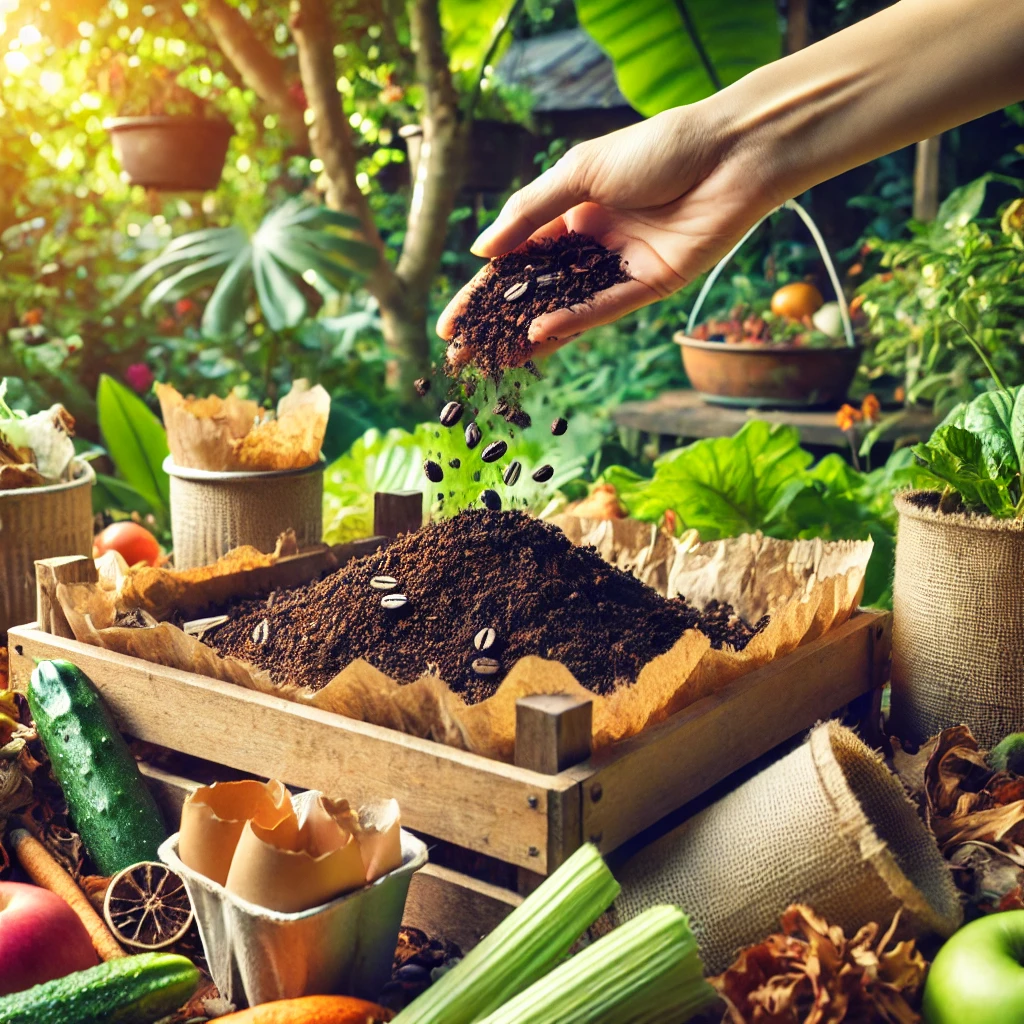
Composting is an eco-friendly way to recycle kitchen waste, and coffee grounds are a valuable addition to your compost pile. Rich in nitrogen, they enhance the decomposition process and contribute to nutrient-rich compost.
Benefits of Composting Coffee Grounds
Incorporating coffee grounds into your compost offers several advantages:
- Nitrogen Enrichment: Coffee grounds are considered a “green” compost material due to their nitrogen content, which aids in breaking down organic matter. ONEWORLDROASTERS.COM
- Improved Soil Structure: Composted coffee grounds enhance soil structure, increasing water retention and promoting beneficial microbial activity. NEWS.OREGONSTATE.EDU
How to Compost Coffee Grounds
To effectively compost coffee grounds:
- Balance with Brown Materials: Maintain a carbon-to-nitrogen ratio by mixing coffee grounds (green material) with brown materials like leaves or paper. A recommended ratio is approximately 4:1 brown-to-green materials. ONEWORLDROASTERS.COM
- Layering: Alternate layers of coffee grounds with brown materials in your compost bin to ensure proper aeration and decomposition.
- Moderation: Avoid adding excessive coffee grounds, as they can compact and hinder airflow. It’s advisable to keep coffee grounds to about 20% of your compost volume. NEWS.OREGONSTATE.EDU
Additional Considerations
- Composting Filters: Used paper coffee filters can also be composted, adding to the brown material content.
- Avoid Overuse: While beneficial, too many coffee grounds can lead to imbalances. Ensure a diverse mix of compost materials for optimal results.
By thoughtfully incorporating coffee grounds into your composting routine, you can enrich your garden soil and contribute to sustainable waste management.
For a visual guide on composting with coffee grounds, you might find this video helpful:





